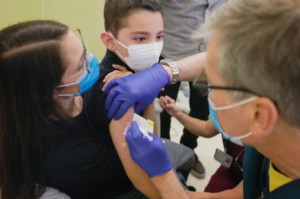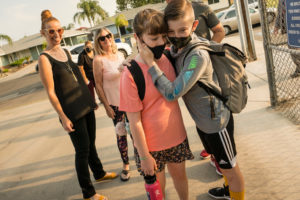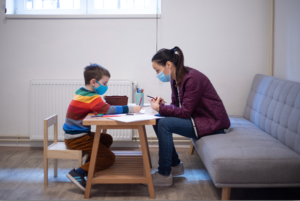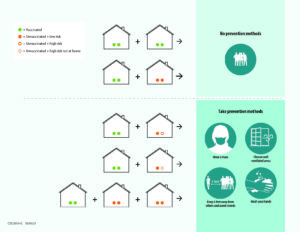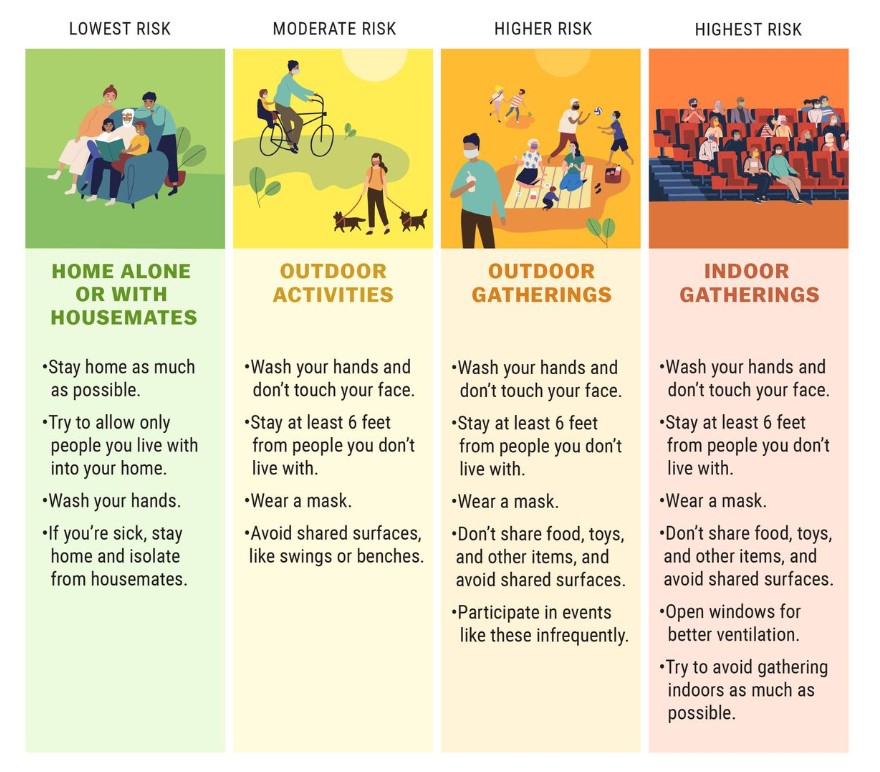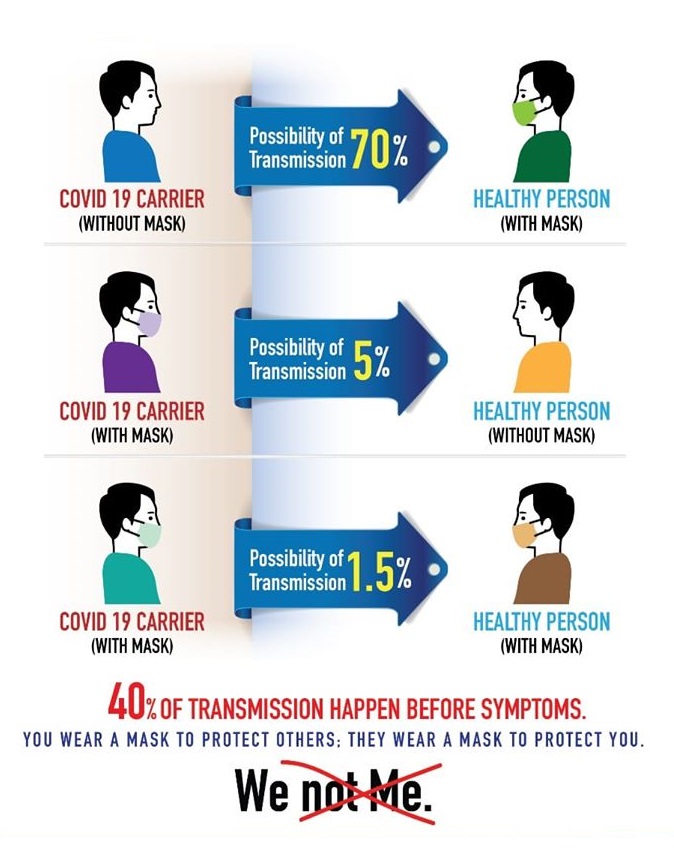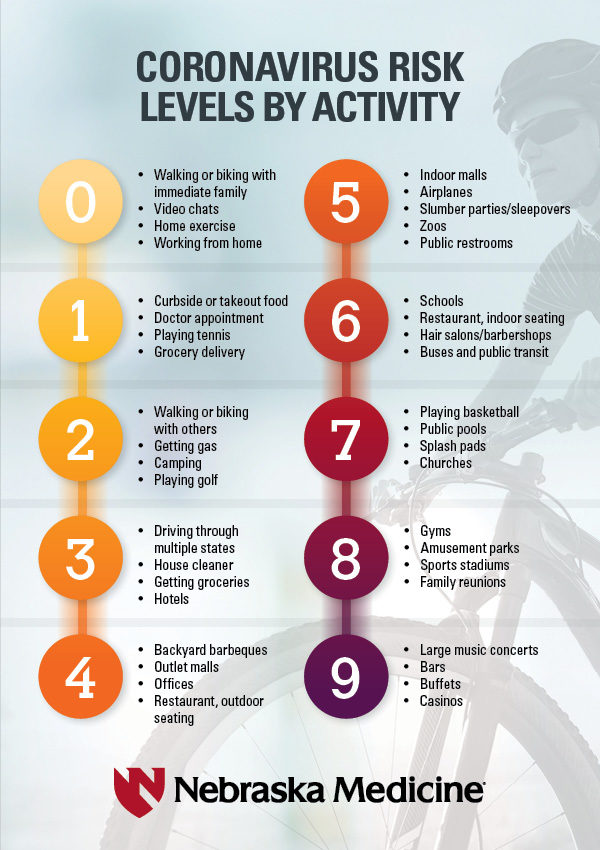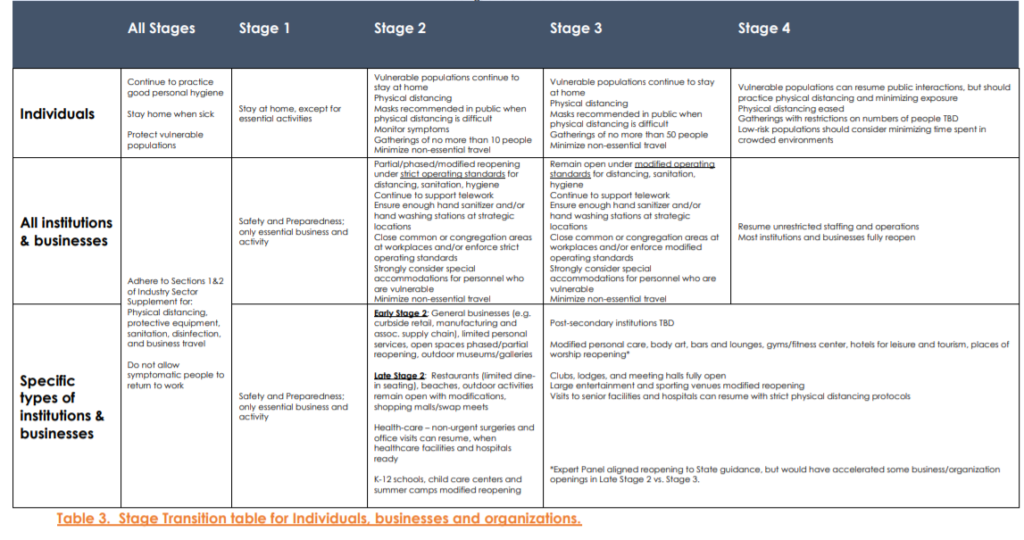COVID-19
Taking precautions: Coronavirus disease (COVID-19)

We place the health and safety of our families and employees at the highest level of priority. We are committed to clearly communicate with parents and employees about potential health issues when they arise. If you have questions or concerns please email stayhealthy@tpathways.org.
We value the trust that you have in us. We understand that your child depends on us to deliver medically-necessary behavioral health treatment. We will continue to inform you and balance your child’s need for treatment with our responsibility to protect stakeholders’ health.
Therapeutic Pathways has set up an alert system with True Dialog. In the event of a critical event, all clients and employees will receive a text message from (209) 215-5568.
UPDATES:
June 20, 2022
What Every Parent Should Know About COVID Vaccination for Toddlers, Children, and Adolescents. The American Academy of Pediatrics recommends COVID-19 vaccination for all infants, children, and adolescents 6 months of age and older. Vaccines are safe and effective in protecting individuals and populations against infectious diseases.
Want to know more? Please read the articles below and speak to your pedestrian about the COVID vaccination for your child.
What Should Parents Know About the COVID Vaccine for Kids Under 5?
COVID-19 and kids: How mRNA vaccines work
January 18, 2022
Every home in the U.S. can order 4 free at-home Covid-19 tests.
Go to: https://www.covidtests.gov/
September 21, 2021
COVID-19 Vaccine for Kids: What You Need to Know. Click here to read more
September 13, 2021
Update regarding quarantine:
Dear Caregiver,
Our priority is to provide your child with safe and uninterrupted treatment.
Did you know, wearing a mask may reduce the risk of your child being asked to quarantine following contact with someone positive for Covid?
Our quarantine guidelines are based on the CDC and other State public health agencies. If your child is in close contact with someone who is positive for COVID:
- Quarantine is not required when Universal mask wearing is in place. If both individuals were wearing face masks, your child can continue to receive treatment services, if your child:
- Remains asymptomatic.
- Tests negative on the 5th day after the date of contact
- Continues to wear a mask during treatment
- Refrains from participating in community activities for at least 10 days from the date of contact
- In some cases, we may suggest that your child receive treatment at home and return to the center following a modified quarantine.
- Modified quarantine is required If one or both individuals were not wearing a face mask. If your child was not wearing a face mask at the time of contact, we will ask that s/he go into modified quarantine. Modified quarantine consists of:
- 10-day quarantine; or
- 7-day quarantine if tested after 5 days from date of contact and results are negative.
- Individuals who are fully vaccinated do not need to quarantine.
Wearing a face mask offers your child many benefits:
- When worn correctly, reduces or eliminates the need for quarantine if exposed to an individual who is positive for COVID.
- Reduces the risk of contracting COVID or other respiratory illnesses such as the flu.
We encourage all children to wear a face mask during treatment. Children participating in K-12 general education programs are required to wear face masks during treatment.
Please talk with your clinical team about how wearing a face mask could benefit your child.
September 9, 2021
“We’re not seeing outbreaks when people are following the guidelines,” Dr. Yvonne Maldonado, a pediatric infectious disease specialist at Stanford Medicine and chair of the American Academy of Pediatrics Committee on Infectious Diseases, told me. “When people point out ‘Look at this outbreak’ in this school or that school, it’s almost exclusively because they’re not wearing masks.”
School Is Starting. Can Children Stay Safe From Covid-19?
How to limit infections in the classroom. Plus, what the data shows about how the Delta variant affects children. Read the article here
June 16, 2021 – Caregiver COVID Update – Click here
September 7, 2021
A.J. Drexel Autism Institute just released a report. Autistic individuals have an increased risk of COVID-19. Read the article here: https://drexel.edu/now/archive/2021/August/Autistic-Individuals-Increased-Risk-of-COVID-19/
July 28,2021
California has now changed its mask requirements to match CDC guidance. Read more here: https://covid19.ca.gov/masks-and-ppe/
May 14, 2021
https://www.latimes.com/california/story/2021-05-14/new-cdc-guidance-is-it-really-safe-remove-mask
May 11,2021
Good News for adolescents! What you need to know: https://www.npr.org/sections/coronavirus-live-updates/2021/05/10/993591902/hold-fda-oks-pfizer-covid-19-vaccine-for-12-15-age-group
May 4, 2021
Covid-19 vaccine myths: What you need to know
https://www.cnn.com/2021/04/28/health/covid-vaccine-myths-debunked/index.html
March 30, 2021
Check out these updates and recommendations.
https://www.yahoo.com/lifestyle/vaccine-pregnant-breastfeeding-224332612.html
March 18, 2021
The first baby in the U.S. born with antibodies against COVID-19 after mom receives a dose of Moderna vaccine while pregnant. Click here to learn more.
March 11, 2021
Health and Safety Policy update for vaccinated individuals.
Therapeutic Pathways monitors CDC guidelines closely and updates our procedures accordingly. CDC recommendations are developed based on the most current available scientific data. As a science-based agency, we align our Health policies with CDC and other public health organizations’ guidelines.
What’s changed: Once you’ve been fully vaccinated, after two weeks you can:
- Gather indoors with fully vaccinated people without wearing a mask.
- Gather indoors with unvaccinated people from one other household without masks, unless any of those people or anyone they live with has an increased risk for severe illness from COVID-19.
- You can continue to attend treatment/work if you have been exposed to someone positive for COVID-19. You do not need to quarantine; however, we ask that you monitor for symptoms and follow our agency sick policy.
- Health screening questions will pertain only to your health status not others in your household.
What is still in effect: Once you have been fully vaccinated, for now, you need to continue to:
- Follow all Therapeutic Pathways’ health and safety protocols while in treatment/at work.
- Take steps to protect yourself and others, including wearing a mask, staying at least 6 feet apart from others, and avoiding crowds and poorly ventilated spaces. Take these precautions whenever you are:
- In public
- At work/in treatment
- Gathering with unvaccinated people from more than one other household
- Visiting with an unvaccinated person who is at increased risk of severe illness or death from COVID-19 or who lives with a person at increased risk
- Avoid medium or large-sized gatherings.
- Delay domestic and international travel that includes air or other public transportation. If you do travel, you will still need to follow CDC guidelines for masks and social distancing during your travel.
Travel plans that include air and/or other public transportation.
The CDC’s guidance on travel has not changed: At this time, the agency recommends that even fully vaccinated individuals refrain from intercity travel on airplanes, trains, and busses.
- We ask that you discuss any travel plans that include public transportation with your clinical supervisor (caregivers) or HR (employees) to determine post-travel return to treatment/work options.
August 3, 2020. As the public continues to tackle this brand new virus, uncertainty and confusion is bound to occur. With changing recommendations, the one thing that will always be clear is that masks help prevent the spread of the virus. Click on the link below to discover further evidence on the use of masks.
With more updates and information posted, it may seem hard to keep up. Nonetheless, we want to make sure that you are well informed with the most accurate and reliable updates. Minor details are discussed such as staying away from fans that may potentially carry the virus and moisturizing your hands after frequently washing/sanitizing in order to prevent skin tears. Click on the link below to learn about the misconceptions of COVID-19.
July 20, 2020. Although the transmission of COVID-19 occurs mainly through respiratory droplets, it can also be transferred through day-to-day objects and surfaces such as doorknobs, countertops, keyboards, etc. Cleaning and disinfecting common surfaces are best practices to prevent the transmission of the virus. The latest information about COVID-19 is available on the CDC website. Click here to learn more.
July 15, 2020. When you wear a face mask, you inhale less of the virus. When more people wear face masks, less of the virus is coming in from other people. If we can get everybody to wear masks, we may be able to get this virus under control. Click here to learn more.
July 17, 2020. Latest Covid-19 update from Governor Gavin Newsom. Click here to learn more.
July 10, 2020. You can think about everyday activities in terms of the three D’s: diversity, distance, and duration. Diversity is the number of households mixing. So risk is higher if you’re meeting with people you don’t live with, particularly if you don’t know everywhere they’ve been in the past two weeks. It’s also higher if your area has had lots of recent cases or if testing is too limited to know how many active carriers are around. Distance is an issue whenever you’re less than six feet from other people, especially if you’re indoors or people aren’t wearing masks. Lastly, it comes down to duration. Are you running past people in the park, or are you having an extended conversation or encounter?
July 9, 2020. A row of matches are shown catching on fire until one steps aside and stops the blaze in its tracks. Breaking the chain stops the blaze, much the way that social distancing will keep more people from catching COVID-19. Do your part and stay home.
July 8, 2020. COVID-19 has redefined risky behavior. So how can we distinguish the different levels of risks?
July 7, 2020. Masks are worn to prevent transmission to others, and this is their most important use for society. If we lower the likelihood of one person’s infecting another, the impact is exponential, so even a small reduction in those odds results in a huge decrease in infections.
July 6, 2020. What types of situations should be avoided? Is it safe to take my child to dance class? What preventive measures can be taken?
June 26, 2020. As of June 18, 2020, the state mandated that People in California must wear face coverings when they are in high-risk situations. Many of the “high-risk” situations described in the mandate apply to conditions that occur during our treatment services.
Therapeutic Pathways fully complies with all state and local public health orders and mandates. Therefore, as part of Therapeutic Pathways’ Health and Safety program, we require that parent/caregivers and our employees wear face coverings whenever physical distancing cannot be ensured.
This includes:
- When parents/caregivers/employees are in the same room
- When parents/caregivers/employees are participating in health screening (center and in-home)
- When employees are working with children (center and in-home)
- When employees are in common areas and in transition between locations within the center and in homes
Our top priority is to protect everyone’s health as we continue to provide services in our centers and in homes.
Please contact your Clinical Supervisor or stayhealthy@tpathways.org if you have additional questions or concerns regarding this requirement.
June 22, 2020. Staying Healthy Together at Therapeutic Pathways!
June 18, 2020. Breaking news: Californians are required to wear masks in high-risk areas. Click here to learn more. Click here to review the California Department of Public Health News Release.
June 12, 2020.“Caution fatigue” are you experiencing it?
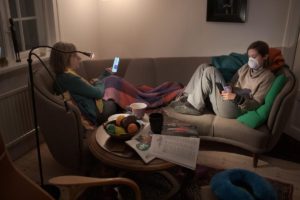
Caution fatigue is an unintentional consequence of feeling drained or unmotivated that many people experience during a prolonged crisis. As caution fatigue sets in, the person becomes less sensitive to threats or warnings in the environment. As a result, engagement in safety behavior stops or significantly reduces.
Remember the HIGH ALERT you experienced when the Pandemic started? When COVID-19, first emerged in the US, and warnings about infection were announced, people responded quickly to public health recommendations to engage in more frequent personal health practices such as handwashing, observe physically distancing, and to shelter-in-place. It has been a challenging and stressful time.
Now, months later, the prolonged combination of stress, anxiety, social isolation, and disrupted routines has left a lot of us feeling a deep sense of “fatigue.”
Are you feeling it? Below are indicators that you may be experiencing “caution fatigue.”
- No longer washing or sanitizing your hands as often as at the start of the Pandemic
- Relaxed vigilance about physical distancing. Ignoring signs/markers in the community to maintain 6 feet between yourself and others
- Leaving your mask at home when you go out
- Finding it hard to process new information about COVID-19
- Feeling drained or depressed
- Finding yourself saying “I am SO over COVID!”
You are not alone. Experts suggest that widespread “caution fatigue” may contribute to decreased adherence to public health recommendations and increased cases of illness.
Good news, you can combat Caution Fatigue!
- Take care of yourself and make time for the things you value
- Find positive ways to reward yourself for engaging in healthy practices
- Reframe your motivation for following guidelines in positive ways: “This keeps me & people I care about healthy”
- Rebuild disrupted routines, especially those that support physical and emotional wellness:
- Exercise
- Eat well
- Get plenty of sleep
- Connect with people you care about and encourage each other’s healthy behavior
- Discover new activities or new ways to engage in favorite “pre-COVID” activities
- Keep the focus on fun and look for the advantages of the “new normal” (e.g., dine-in restaurants are less crowded and more focused on your experience)
- Diversify where you receive credible sources of information
- Access a variety of reliable news sources, including, the CDC website (https://www.cdc.gov/)
- Avoid excess time on Social Media
- Talk about how you are feeling with your circle of friends and family
June 5, 2020. Therapeutic Pathways Statement on Peaceful Protest and Physical Distancing. We are aware that many of you may feel it is important to participate in the peaceful demonstrations happening throughout the region. We recognize this is a personal choice, and if you do decide to participate – we want you to be able do so with the lowest possible risk. We encourage you to discuss your activities and plans with your Clinical Supervisor, Site Coordinator or HR for additional guidance on physical distancing and staying healthy.
Here are answers to some questions you might have:
What exactly is physical distancing?
Physical distancing is a practice recommended by public health officials to stop or slow down the spread of illness. It requires maintaining physical space between yourself and individuals who may spread who may or may not show symptoms of COVID-19.
Can we re-enter our communities and start resuming some activities while continuing to stay healthy?
Yes, with caution. The pandemic is not a light switch that can be turned on and off. The COVID-19 virus is still present and active. There is no vaccine. You may minimize your risk, but, you will not be able to eliminate all risk of exposure. If you are a member of a high-risk group, you should consult carefully with your doctor before engaging in activities outside your home or with individuals other than those in your household.
What precautions reduce your risk of illness?
The key is to maintain space between yourself and others. Keeping space between you and others while you are out in public is one of the best methods to prevent the spread of C-19. To minimize risk:
- Choose outside activities over inside:
- Such as outdoor dining and workout classes
- Get together in a park, backyard, or other outdoor location
- Stay at least 6 feet (about 2 arms’ length) from people other than those in your household
- Stay out of crowded places and avoid large gatherings
- Always have a mask with you and wear it when physically distancing from others is not possible
- Getting together at someone else’s house:
- Bring your own food and avoid shared snacks (e.g., chips, dips, etc.)
- Create your own physical distancing markers by arranging furniture and seating
- Wash your hands and avoid touching shared surfaces
- When you are in public places:
- Wash your hands frequently
- Use elbows, knees, and feet rather than fingers and hands to open/close doors, push buttons, and turn on lights
- Comply with physical distancing markers when present
- IF physical distancing markers are not present, use good judgement in maintaining distance from others
Can I return to work for my next shift if I peacefully protest on my own time?
That depends on you. If you’ve practice physical distancing, and wore a mask in those times when distancing was impossible to maintain for short periods of time, then the general answer is “yes.” It will also depend upon your answers to the daily pre-work health screening. If you’re not sure, we recommend that you partner with your site coordinator or HR for additional guidance.
Since the COVID-19 pandemic started, Therapeutic Pathways has focused a large portion of its resources on protecting the health of employees, clients, families, and caregivers. As a result, we are successfully delivering treatment during the one of the most challenging times in recent history. Our goal is to continue to keep our employees and those in our care healthy as businesses open and people begin to return to pre-COVID activities.
March 28, 2020. The coronavirus has changed our world forever. Wondering what life will look like in the “new normal?” Click on the link below and sees how experts are talking about going out to eat, travel, working out at the gym and more.
https://view.ceros.com/abc/abc7news-life-after-covid/p/2
May 26, 2020. What you should know about CA’s Stages of reopening. As California moves into Stage 3 of the reopening phases, the table below provides some helpful information about each stage.
Have questions about what you guidelines you should follow as community businesses reopen? Please check back here as we will be posting guidelines for staying healthy as businesses reopen. The following article also offers great suggestions on variety of activities: https://www.npr.org/sections/health-shots/2020/05/23/861325631/from-camping-to-dining-out-heres-how-experts-rate-the-risks-of-14-summer-activit
May 22, 2020. Making plans to travel? Please review our policy for returning to work/treatment after your trip and guidelines for safe traveling below:
Therapeutic Pathways policy: Return to work/treatment following Travel
- In-State and Inter-State travel. Prior to returning to work/treatment, employees and clients returning from In-State or Inter-State travel are required to do the following:
- Discuss recent travel history with Clinical Supervisor (Clients) or HR (employees),
AND:
- Have no symptoms of illness and no fever
- Have followed CDC guidelines during their travel including:
- Person health and hygiene practices
- Physical distancing procedures
- Have not been exposed to anyone who is suspected or confirmed to have COVID-19
- International travel. Prior to returning to work/treatment, Employees and clients returning from international travel are required to do the following::
- Discuss recent travel history with Clinical Supervisor (Clients) or HR (employees),
AND, either:
- Stay under precautionary quarantine for 14 days prior to returning to work or treatment
- Submit a current negative COVID-19 testing result
Guidelines for Safe Traveling
Special considerations for Air, Bus, & Train travel: Take extra health practice precautions when traveling by air, bus, and/or train, as these modes of travel involve:
- Spending time in check-in &security lines and inside terminals
- Results in close contact with other people and frequently touched surfaces.
- Most viruses and other germs do not spread easily on air flights because of how air circulates and is filtered on airplanes, however:
- Physical distancing is difficult on airplanes, trains, and buses, during travel
- You may have to sit near others (within 6 feet), sometimes for hours.
- Airplane, bus, and train cleaning may not provide adequate sanitization during travel given that all of these vehicles contain many commonly touch surfaces.
- All the above items may increase the risk for exposure to viruses and illness
- Physical distancing is difficult on airplanes, trains, and buses, during travel
During all travel:
- Pack enough alcohol-based hand sanitizer (at least 60% alcohol) and keep it within easy to reach. Wash your hands frequently
- Use elbows, knuckles, knees, and feet rather than fingers to push buttons, open doors, and, other commonly touched surfaces.
- Bring a cloth face covering to wear in public places.
- Prepare food and water for your trip. Pack non-perishable food in case restaurants and stores are closed.
- Considering packing supplies to clean your travel lodgings upon arrival
In-State travel:
-
- Check the local health department where you are, along your route, and at your planned destination.
- While you are traveling, it is possible local and county public health orders will vary
- Different counties may put into place travel restrictions, such as stay-at-home or shelter-in-place orders, availability of restaurants and other local public businesses
- Plan to keep checking for updates as you travel, regulations change frequently.
- Check the local health department where you are, along your route, and at your planned destination.
- Inter-State travel:
- Check the State health department guidelines at your planned destination, to determine what restrictions may be in place, such as:
- Mandated quarantines upon arrival,
- State border closures
- Plan to keep checking for updates as you travel, regulations change frequently.
- Check the State health department guidelines at your planned destination, to determine what restrictions may be in place, such as:
- International Travel:
- Be aware of any US or Country regulations in place before making plans to travel internationally
- CDC recommends that travelers avoid all nonessential travel to the following destinations.
- China
- Iran
- Most European Countries
- The United Kingdom and Ireland
- Plan to keep checking for updates as you travel, regulations change frequently.
May 14, 2020. Guidelines as California starts to “re-open.” Many counties in California are moving into less restrictive shelter-in-place conditions. While this is a welcome change, it does not mean that all shelter-in-place orders have been removed. As businesses start to re-open, strict guidelines continue to be in place to prevent the spread of illness.
Consistent with State and Local guidelines for “re-opening California,” we ask that you:
- Wear a face covering during health screening; and, anytime social distancing cannot be ensured between you and our employees
If you do not have a face covering, please let our staff know and we will provide you with a paper, surgical mask.
- Physically distance from others when you are in the community and avoid social gatherings
- Wear face coverings while in the community when social distancing cannot be ensured
Our employees are following these same guidelines to protect your child and family.
We appreciate your continued partnership to prevent the spread of illness and preserve the integrity of our treatment services.
May 13, 2020: Update to Health Screening Questions. We closely monitor the CDC webpage for updates related to COVID-19. This information is used to modify our preventative measures so that we can best protect the health of your family and our employees.
Recently, CDC has expanded its list of potential COVID-19 symptoms based on research and review of cases. In response to this information, we have expanded our Health Screening question regarding if you are anyone in your household are experiencing symptoms related to COVID-19 to include the following:
- Cough
- Shortness of breath or difficulty breathing
- Fever
- Chills
- Muscle pain
- Sore throat
- New loss of taste or smell
- Gastrointestinal symptoms like nausea, vomiting, or diarrhea
If your child or any of your family members are experiencing any of the symptoms above, please contact your Clinical Supervisor as soon as possible.
If you would like more information regarding symptoms of COVID-19, please visit: https://www.cdc.gov/coronavirus/2019-ncov/symptoms-testing/symptoms.html
May 11, 2020. Governor Newsom announced that California has moved to Stage 2 of the state’s reopening plan effective Friday, May 8th. As California moves toward less restrictive shelter-in-place orders, our goal is to preserve the integrity of our health and safety program and prevent the spread of illness.
To accomplish this we will continue to implement the current Health and Safety procedures in place at our centers and in homes, including:
- Health and temperature screenings prior to entering centers and homes
- 72-hour to 14-day prior to returning to treatment rules depending on the nature of the illness
- Daily sanitation of centers, nightly professional cleanings, and regularly scheduled deep cleanings
- In-home sanitation of treatment surfaces and materials by staff and daily sanitation by parents
- Adherence to CDC social distancing recommendations both during and outside of treatment
- Visitors are not permitted in centers during business hours or in homes during treatment sessions
We are also expanding our protocols to include the following:
- At centers and in homes, employees are required to wear cloth face coverings when social distancing cannot be ensured
- During in-home sessions, household members are asked to wear cloth face coverings when social distancing between them and our employee cannot be ensured
- Centers will be mapped and marked for maximum social distancing and occupancy
- Clinical staff will work with each family to make individualized decisions regarding hours and location of services as children return to treatment.
We appreciate your continued partnership in our illness prevention program. Together we are able to deliver treatment in safe and healthy environments.
April 30, 2020: Health screenings are an important part of promoting a healthy treatment environment. We are expanding our in-home health screening procedures to include monitoring of temperatures of household members and employees prior to each session.
To assist our in-home families with this process, Therapeutic Pathways will provide each family with an infrared thermometer and instructions on how to use it. Families will also receive the updated in-home, health screening procedures for their household and our staff. Clinical supervisors will be available to discuss the procedures and use of the thermometer.
Once a family receives the thermometer, we ask that they:
- Take each household member’s temperature 30-minutes prior to the start of the session.
- Cancel the session if any member has a temperature of 99.9 or great
- Provide our staff member with the thermometer upon arrival at your home so that s/he can verify that s/he is fever-free
- Store the thermometer in a safe and secure place when not in use for health screening
We thank all of our families for partnering with us to prevent the spread of illness. Together we can keep everyone healthy.
April 30, 2020: Therapeutic Pathways: Statement Regarding Face Coverings
Therapeutic Pathways fully complies with all local public health orders requiring residents to wear face coverings. In these counties, employees are required to wear face coverings during and outside work hours in accordance with the local order.
Therapeutic Pathways strongly recommends that all employees wear cloth face coverings while working onsite and during in-home sessions; especially, in situations when at least 6 feet of social distancing cannot be ensured. Therapeutic Pathways is working to distribute at least one cloth face covering to each staff member. Staff are free to use their own personal cloth face coverings as well, and staff who are able to make or provide their own cloth face coverings are encouraged to do so. The cost of face coverings to staff will be reimbursed on request.
Cloth face coverings are NOT intended to protect the individual wearing the cover and should not be considered personal protective equipment (PPE). Instead, cloth face coverings are intended to reduce the spread of the virus from people who may be carrying the virus but are not currently exhibiting symptoms. CDC emphasizes that the use of cloth face coverings complements existing guidelines and does NOT change the need to follow social distancing and hand-washing guidance. For full guidance on how to protect yourself and others during the current pandemic go to https://www.cdc.gov/coronavirus/2019-ncov/prevent-getting-sick/prevention.html
When using a cloth face covering, you should follow these guidelines:
- Clean your hands with an alcohol-based hand rub or soap and water before putting on a cloth face covering.
- Ensure the cloth face-covering fits snugly around your mouth and nose.
- Avoid touching the cloth face covering while using it; if you do touch it, wash your hands with soap and water or an alcohol-based hand rub.
- Do not wear a cloth face covering when it is damp or when wet from spit or mucus.
- When removing the cloth face covering, remove it from behind, do not touch the front of the cloth face covering.
- Immediately wash your hands with soap and water for 20 seconds after removing the cloth face covering.
- It is a good idea to wash your cloth face-covering frequently, ideally at the end of each day. Put your cloth face coverings in a bag or a bin until they can be hand- or machine-washed with detergent and hot water and dried on a hot cycle or hung to dry in a safe place. If you must re-wear your cloth face covering before washing, wash your hands immediately after putting it back on and avoid touching your face.
Discard cloth face coverings that:
- No longer cover the nose and mouth
- Have stretched-out or damaged ties or straps
- Cannot stay on the face
- Have holes or tears in the fabric
April 17, 2020: Check out this audio update for everyday prevention actions from the Centers for Disease Control.
English:
Spanish:
We know these are challenging times for you and your family. Whether your child is currently receiving services or not, we want to be there to help.
Over the next few weeks, we will be sending a series of helpful tips to you from our clinical team. We hope that you find them useful.
Tip #3: Aim for balance. Finding the balance between work and play is important. Take time to just play with your child and enjoy being together. Just having fun together is a learning opportunity, too!
Interested in hearing how these ideas might be individualized for your child? We are here to help! IF you are not currently receiving services, reach out to your Clinical Supervisor. We can support you at a distance through Telehealth without the need for any in-person contact.
Saludos Padres/Guardianes,
Sabemos que puede estar una hora desafiante para ustedes y su familia. Si o no su hijo actualmente recibe servicios, queremos ayudar.
Durante de las próximas semanas, venderemos una serie de consejos de nuestros empleados clínicos. Esperamos que los consejos son útiles.
Consejo #3: Aspirar al equilibrio. Encontrando el equilibrio entre trabajo y equilibrio es importante. Dedica tiempo a jugar con su hijo y disfruta tiempo juntos. Divirtiéndose juntos también es una oportunidad de aprendizaje.
¿Interesada en aprendiendo como puede individualizar estés consejos para su hijo? Queremos ayudarse. Si su hijo no está recibiendo servicios actualmente, contacta su supervisor clínico. Podemos apoyarlo a la distancia usando Telehealth (citas usando tecnología) sin la necesidad de contacto en persona.
April 9, 2020: We know these are challenging times for you and your family. Whether your child is currently receiving services or not, we want to be there to help.
Over the next few weeks, we will be sending a series of helpful tips to you from our clinical team. We hope that you find them useful.
Tip #2: Practice mastered skills that are fun and easy. When times are hard, it is nice to be rewarded for the things that come easy. Remember that the good behavior and skills your child may be doing with ease now, were once challenging to learn. Practice and reward your child for skills you know he/she has already mastered such as attending, vocabulary, following instructions, and completion of activities. Practicing mastered skills will keep everyone feeling successful.
Interested in hearing how these ideas might be individualized for your child? We are here to help! IF you are not currently receiving services, reach out to your Clinical Supervisor. We can support you at a distance through Telehealth without the need for any in-person contact.
Sabemos que puede estar una hora desafiante para ustedes y su familia. Si o no su hijo actualmente recibe servicios, queremos ayudar.
Durante de las próximas semanas, venderemos una serie de consejos de nuestros empleados clínicos. Esperamos que los consejos son útiles.
Consejo #2: Practica habilidades que su hijo ha aprendido que son fáciles y divertidos. Durante de estas horas desafiantes, es bueno ser recompensado por completando habilidades mas fáciles. Recuerda que los comportamientos buenos y las habilidades que ahora son fáciles por su hijo fueron difíciles de aprender. Practica y recompensa su hijo por completar habilidades aprendidas como prestando atención, vocabulario, siguiendo instrucciones, y completando actividades. ¡Practicando habilidades aprendidas ayuda a todos sentirse exitosos!
¿Interesada en aprendiendo como puede individualizar estés consejos para su hijo? Queremos ayudarse. Si su hijo no está recibiendo servicios actualmente, contacta su supervisor clínico. Podemos apoyarlo a la distancia usando Telehealth (citas usando tecnología) sin la necesidad de contacto en persona.
April 6, 2020: Donations needed – We need donations of premade masks or materials to make masks (new 100% cotton T-shirts, cotton fabric and elastic). Contact https://www.thekendallfoundation.org/ to donate.
April 5, 2020: As you may be aware, the CDC pandemic guidelines now include the recommendation to wear cloth face coverings in public settings where other social distancing measures are difficult to maintain (e.g., grocery stores and pharmacies). Effective immediately, we encourage our employees wear face coverings while at work as an additional, voluntary public health measure.
Therapeutic Pathways also supports the current CDC guidance to reserve critical supplies such as N-95 and surgical facemasks for healthcare workers and other medical first responders. To that end, we are currently securing materials to assist employees with making cloth face coverings at work; and, providing them with instructions as to how to make their own at home from common materials.
It is important to emphasize that maintaining 6-feet social distancing to the fullest extent possible, engaging in frequent hand washing, and adhering to sanitation guidelines remain important to slowing the spread of the virus.
Therapeutic Pathways continues to strictly implement all sanitation efforts at each of our centers, including, screening all individuals prior to entering the facility, multiple daily cleanings of materials and surfaces, professional evening janitorial services, and scheduled deep cleanings. In addition, we ask families to continue to observe our screening, social distancing, and sanitation protocols during all in-home sessions.
Please contact stayhealthy@tpathways.org if you have any questions or concerns regarding our center and/or in-home screening, sanitation, and social distancing protocols. Protecting the health and safety of our clients and employees during this rapidly changing situation is our top priority.
April 1, 2020. Please reference the emergency Medi-Cal PDF linked above.
March 31, 2020. Clinical Team Tips: Whether your child is currently receiving services or not, we want to be there to help. Check out the tips below from our Clinical Team. Interested in hearing how these ideas might be individualized for your child? If you are not currently receiving services, reach out to your Clinical Supervisor. We can support you at a distance through Telehealth without the need for any in-person contact.
Tip #1: Celebrate each success. Celebrating each of your child’s successes keeps the focus on the positive events that each day brings. Whether your child reached a goal or has just taken one step closer, all successes are important. An enthusiastic celebration is one of the most effective techniques you can use to encourage your child’s progress. And, it can be fun for everyone, When the whole family celebrates each member’s success, everyone gets to share in the joy of accomplishment. Celebrate at the moment with your child; and, have an end of the day celebration for all to share in.
March 22, 2020. We want you to know that during these extraordinary times, we are here for you.
Each of us is facing our own unique challenges as we all seek to protect our families during the COVID-19 crisis. Some families are deciding to keep their children at home and out of services. For others, this is not an option. We know these are difficult choices for families and are working to make as many treatment options available to you as possible. We do not want to see parents have to choose between the health of their family and uninterrupted treatment services.
Under both state and federal law, the work we perform is considered an essential service and exempt from the shelter-in-place requirements. This status enables us to keep our centers open and provide in-home services. When delivering center-based and in-home treatment, we meticulously follow public health guidelines to minimize the spread of the virus to the fullest extent possible.
For other families, receiving services at our center or in their home is not possible at this time. We understand. Together with health plans, we are prepared to offer additional service options that may be right for your child and family.
Telehealth is one of those options. Through the use of Telehealth, services are delivered using secure, live-video technology. We currently have an audio-video platform in place that will allow us to offer your family a variety of services; while, continuing to protect your privacy and security. Talk to your clinical team about how a Telehealth option might work for you.
We respect the decisions you make for the safety and health of your family. We are here to support you along the way.
These are difficult times, particularly for families with children with disabilities. However, when facing life’s challenges, at the Kendall Centers, we never lose hope. This is fundamental to what we do and who we are, and it is as true today as it was before the COVID 19 outbreak. We will get through this together.
Please don’t hesitate to contact us if we can support you in any way.
March 20, 2020: How does California’s statewide “shelter in place” order affect Therapeutic Pathways?
Under both California law and regulations issued by the Federal Centers for Medicare and Medicaid Services (CMS), ABA/Autism services provided to individuals with autism are medically necessary; and, as such is an essential service.
Consistent with these rules and the order issued by Governor Newsom, we are committed to meeting the needs of the families we serve, Therapeutic Pathways will remain open. During this time we will also offer services via Telehealth as an additional treatment alternative. All families are unique; and, we will work to find a treatment option right for yours!
We will continue to monitor and follow all recommendations for sanitation and social distancing guidelines to the fullest extent possible as they are issued by state and federal authorities.
We are here for you. Please reach out to us with any questions.
March 16, 2020: The current COVID-19 situation is changing very quickly. We continue to follow CDC and Public Health guidelines as we make decisions regarding keeping our centers open. In making these decisions, we have taken into consideration the recommendations and orders of CDC and local Public Health agencies as they apply to health care providers.
We respect the right of parents to make decisions that are best for their families. Clinical staff will be reaching out to families to discuss individual family needs.
In addition to the other measures already in place, we are implementing further preventative measures at each center as follows:
- Employees and clients who feel they may have been exposed to an individual who has tested positive to the COVID-19 virus should inform their center, remain home and consult their physician.
- Parents of children with at increased risk for severe illness should discuss with their healthcare provider whether their child should stay home.
- On-site staff will be limited to only those needed for essential services, scheduled direct treatment sessions, supervision, and support.
March 14, 2020: We are aware that wide-spread school district closures have been instated and in each of the areas we provide services. At this time, we remain open to provide center-based and in-home treatment.
Why our centers remain open: As a behavioral health provider, our centers provide medically necessary treatment for children and youth. Our Incident Management Team continues to monitor the situation and make decisions consistent with CDC and local health agency guidelines. We will update you should the circumstance change.
Additional preventative actions effective immediately: To minimize risks of exposure the following measures are effective immediately:
- Employees or Clients returning from out-of-country travel are required to be under precautionary quarantine for 14 days prior to returning to work or treatment.
- Employees and clients absent due to flu-like symptoms (e.g., fever, cough, respiratory difficulties) are asked to remain home until 48 hours symptom free.
- Individuals allowed access into the centers will be restricted to only clients, parents/caregivers, employees, and other authorized individuals. No other visitors will be permitted until further notice.
- Our Kids-Helping-Kids program and community outings are suspended until further notice.
March 13, 2020: all Therapeutic Pathways centers are open and we have no known COVID-19 cases at this time. At this time, we have no plans to close any of our centers or services.
Steps we’re taking
We have assembled an Incident Management Team. This team includes leaders from each department within our organization. On a daily basis, the team closely monitors information from Center for Disease Control (CDC) and local public health agencies regarding the spread of COVID-19. In addition, the team works in collaboration to assess and take proactive measures to reduce any health risk to children and employees. In the event that a circumstance arises that potentially impacts the health of your child or employees, this team will consult with local public health agencies on any further actions.
We have expanded our sanitation efforts. We are implementing practices to make sure we are maintaining a healthy treatment environment. We have expanded our janitorial services and sanitation efforts throughout the day. Currently, treatment staff are asked to sanitize before, during, and after each session and site-wide cleaning sweeps are being conducted multiple times a day. Our staff are dedicated to helping everyone stay healthy!
Steps you can take
- We urge all stakeholders to continue to follow the protocols recommended by CDC to protect themselves and prevent spread of illness:
- Rely on fact-based information:
- San Joaquin County Public Health COVID-19
- Stanislaus County Public Health COVID-19
- Alameda County Public Health COVID-19
- Sacramento County Public Health COVID-19
- California Department of Public Health COVID-19
- The Centers for Disease Control and Prevention https://www.cdc.gov/
- The World Health Organization https://www.who.int/
- Know the signs and symptoms of COVID-19:
- Fever
- Cough
- Shortness of Breath
- Protect vulnerable populations at higher risk:
- Parents of children at increased risk for severe illness should discuss with their healthcare provider whether their child should stay home.
- Remain home when sick and notify center of illness.
- Engage in personal protective health behavior.
- Clean and disinfect frequently touched surfaces daily.
- Rely on fact-based information:
 Listen to Our Podcast
Listen to Our Podcast


